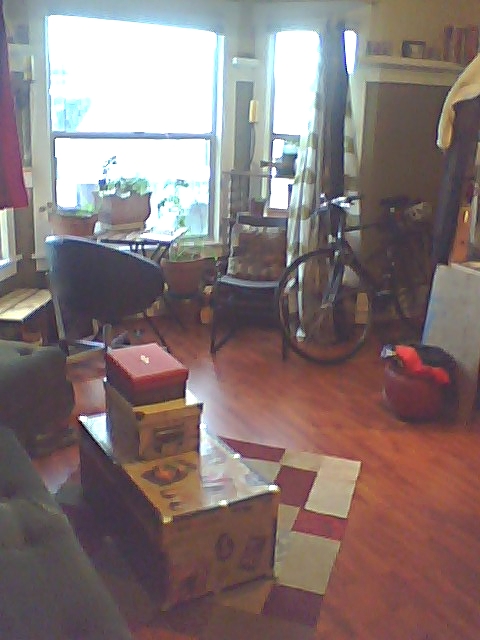In last year’s TED Talk speech the author of Eat, Pray, Love explains how she is able to handle the terrible pressure to make something genius after having a huge breakout bestseller. Her solution is to do as folks did before the Age of Reason, and think of your genius as something outside of yourself (the bonus is a great Tom Waits story).
This has been unbelievably helpful for me lately. If you are a creative person who has been haunted any kind of creative block, I highly recommend you watch it.
Don’t worry, the rest of my post will still be waiting below…
Elizabeth Gilbert’s TED Talk on Finding Your Genius
To open in a new tab: Elizabeth Gilbert’s TED talk on Personifying Your Genius
Finding Your Genius
In short, she suggests that artists need a way to “create a safe distance” between ourselves and the anxiety we feel about our work. Thinking of genius as some kind of separate entity frees us from our fears that our brilliance won’t match our expectations.
It also means I get to have a new imaginary friend, a Puckish deity that hops like an invisible monkey around my computer desk, taunting me with unfinished sentences and half-baked ideas.
After I began to think of my own creativity as this impish being it assumed a greater importance in my life. My art and my creative space was no longer a task to be mastered or even a puzzle to be solved. It was demigod as revered as Dionysus (I suspect they’re cousins). It was also my oldest and dearest friend. In both cases, the measure of time and respect I had to give to the creative process increased dramatically, as it would if the Macy’s window mannequin came to life and offered to be your sweetheart.
So I would like to take a moment to speak to you about your demiurge, the fiery creative beast who lives in your belly, showers you with presents, abandons you for another woman, only to wake you from a dream as if she’d never left.
You know you, your muse. Let’s talk about her.
Have you been treating her right? Or have you been resentful? Avoiding her calls? Talking trash about her to your friends? Putting off quality time so you can watch telly, play Spades, or other trivial nonsense where she’s clearly not invited? Do you really think a Goddess, no matter how lonely, wants to hang out while you update your Facebook page? And if she did, you’d likely be annoyed that she showed up at such an inopportune moment.
Remember, time devoted to your genius need not be a two-way street: she is a demigod, and under no obligation to hang out with the likes of you in the first place. Know that there are many whose shrines to her greatness far surpass yours, that there are those who have devoted whole temples to her—and so many of these devotees with their trinkets and their affirmations have only seen the brightest glimpse of her visage. She owes you nothing, wretch.
Is your shrine tidy and free of cobwebs? Do you offer her gifts? Do you meditate daily on her awesomeness? If you hesitate (as I do!) to offer anything but a resounding “Yes!” to these queries, consider yourself lucky, chump. Lucky that she comes to you at all. Considering your petulance, she probably has a thing for you.
Don’t make that face, I’m sure you’ve had your suspicions. You wouldn’t have gotten into this whole creation thing in the first place if you hadn’t suspected the Muse pays more attention to you. Admit it, she makes you feel special. All those nights facing off with the keyboard to create something that will likely never put a penny in your pocket or a lover between your sheets were only fun when she was there. And when she didn’t show up you resented her. Who the hell was she, besides a Goddess, besides the very thing that makes humans beautiful and inspirational, who the hell was she besides the reason we have libraries and museums and video games and Cathedrals—so what to all that, you could have gone drinking with your friends, both of them.
No matter that when you’re swilling Cosmos at cocktail parties you slur that her creative spark is your goddamned reason for living.
Here’s what I believe: you like her; she likes you. When you are ready to settle down and put her first in your life, she will be there for you. When you are a monk in your devotion and a lover in your ardor, when each day begins with an act of devotion to your creative urge, she will reward you with all the brilliance of your ego’s fantasies. You know, and I know, she will be waiting.


